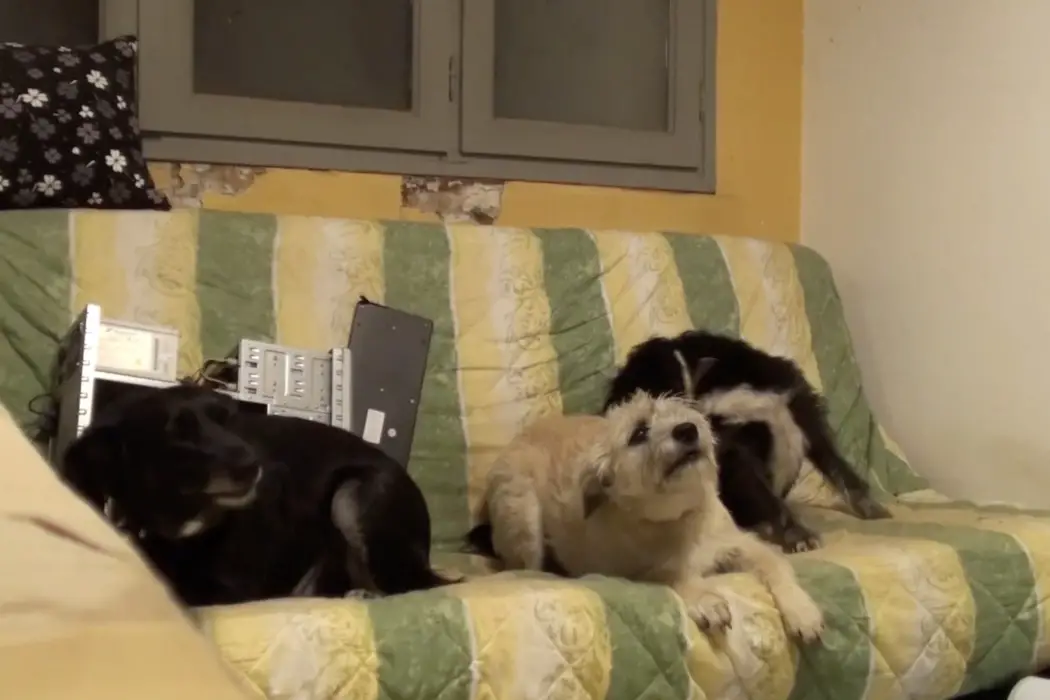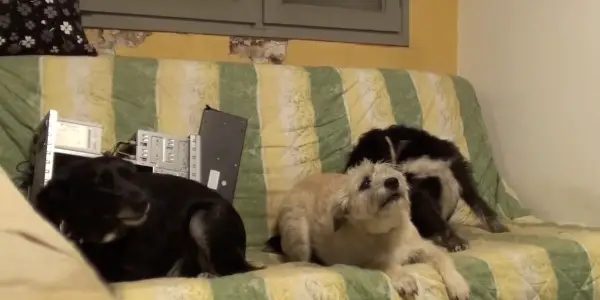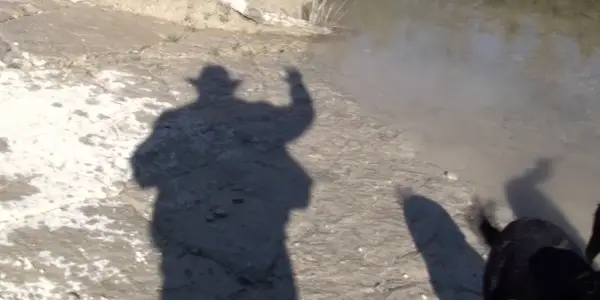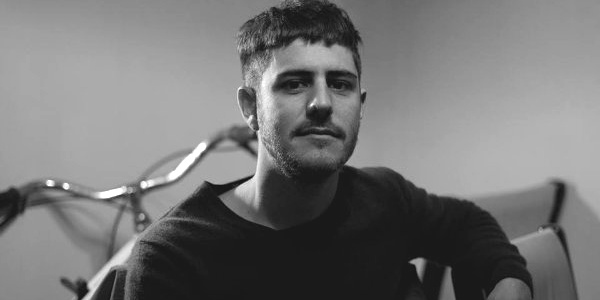Berlinale 2021: Writer And Director Ignacio Ceroi On WHAT WILL SUMMER BRING

Rafaela Sales Ross is a proud Brazilian currently living in…
What Will Summer Bring is a poetic reflection on displacement, a creation blessed by fortune. Ignacio Ceroi builds a poignant dwelling on the contemporary nomad that beautifully conveys a man’s existential quest. The director sat with Film Inquiry to discuss the film’s exploration of diaspora, privilege and isolation. For our review of What Will Summer Bring, click here.
Rafaela Sales Ross for Film Inquiry: What was your first reaction to finding the videos? And how much material did you initially find?
Ignacio Ceroi: At first, it was very strange because when I bought the camera, I didn’t see immediately that it had the videos inside. First I shot some videos with my girlfriend, Mariana, and a friend of hers. I remember I got the camera and immediately thought “oh, they sent it over with a little bit of charge left” so I turned it on and started to shoot some videos right there in the apartment, but the visor was very small so I couldn’t see what I was shooting… That’s when I decided to plug it into the computer, so I could download the videos and check if the camera was good or not since it had been very cheap.
When I plugged the camera into the computer, I saw that there was a 35-gigabyte folder or something like that. I didn’t completely understand at first what it was because you couldn’t immediately see the videos, you had to open them through another program. When I finally opened the videos, the first one was a very close shot of the eyes of a dog. The first 10 or 15 videos were all about the dogs, which is something you can see in the film. Suddenly, there was a video of Charles doing something with his pants, and that made me really scared because I thought he might be a pervert and it all became very weird and strange. The thing is, I don’t speak any French, so I couldn’t understand what he was saying to his family and friends, I had the help of my girlfriend with that.
After I had the help of my girlfriend, I downloaded it all to my computer and was like “this is a jewel, I need to do something with this”. At first, I thought I was going to do a short with the dogs only, but then, once I started editing, I realised that I could turn this into a longer film and introduce the part where I explain my being in France. That’s when the structure of the film came together and when I first contacted him because I realised that had to be part of the story. It couldn’t just be a voiceover on top of these images of a man, I had to introduce the fact that I had found this footage and contacted Charles. Then, apart from all of that, it became about my relationship with Charles and I started working on the parallels between his wife, Margaux, and Mariana and me being apart because of the pandemic. This is where I started to find the connections, and I started to fuse the character of Charles and mine, all the similar things despite us being of different ages and being in different countries. This was all part of my initial idea.

You explore this idea of displacement and non-belonging, you being away in France and Charles moving to Cameroon – albeit for different reasons. I like this idea of parallels. How did this come to be?
Ignacio Ceroi: The thing is, I was only going to be there for three months, you know, so I just knew that I was going and I was returning to Buenos Aires because I have my life here, I have my work here. But, at the same time, my girlfriend Mariana was there for a year, so I mainly experienced what it feels like to be away from your country from Mariana’s experience, she was the person who was going to be there for a year and she had to get work in anything she could so she could provide for herself there.
I believe one of the main themes of the film is work and issues surrounding work. A lot of the time, work issues are the ones responsible for making people move from one place to the other, especially when they can’t find work in their home country. This happens a lot in Argentina, people will go to Europe because they don’t think they have opportunities here, so I thought I could structure the film from the point of view of people moving from one place to another. At the same time, there was a strike going on in France that had to do with labour laws, so I started to realise that this need of people having to find work to sustain themselves in places that are not their own was becoming important in the film.
It is very interesting to see how you explore not only Charles’ privilege as a white, European male working in an African country but the whole general idea of how, when a person going from Europe to a country perceived as “underdeveloped” is labelled an expatriate, but when it goes the other way around, the person is labelled an immigrant – often with a negative connotation. As an immigrant myself, I am constantly aware of the distinction. It is also interesting thinking about it coming from a place of reflecting on Argentina’s colonial past. How was your approach to these subjects in the film?
Ignacio Ceroi: That’s a tough question. Let me take the first part of what you said, related to your personal experience. It’s very curious because, for a lot of people who are not living in their home countries, the film touches on something very personal. I have a friend living in Vienna and she’s having a hard time there… But she has a good job and she doesn’t know what to do. This feeling of not being in a place that absolutely belongs to you, you know, where you feel comfortable, it’s a very penetrating thing for people who are reliving that experience through the film.
About Charles, I wanted to build this innocent child, this good man that believes that everybody is good. Someone who has a good soul, who doesn’t differentiate people based on their skin colour, just a person who went there and was fascinated with what he was seeing and trying to capture everything in a very transparent and innocent way. To me that was an interesting character, a guy who introduced himself into a black community and doesn’t recognise that he is a stranger there, you know? He just doesn’t feel that way.

I don’t think it has ever crossed his mind that, in this scenario, he is the outsider.
Ignacio Ceroi: Yeah, yeah. There is a part that I like a lot when he sees the pastor, this guy who is very strange, and he says “well, we didn’t become friends but we shared some fondness”. In the end, he’s a good person, you know, like the relationship he has with the dogs, with his mother. So it was important to me to build this character who has good intentions. I still don’t completely understand some things that happened to people in the film, or what they felt, but it was important to me that you could see a good man in a place he doesn’t belong to, always connected to what moves him, to his emotions.
Has Charles watched the film?
Ignacio Ceroi: He has seen some parts that I sent him, but the thing is: he doesn’t speak Spanish nor English, only French, and I don’t have a French subtitled film yet, so he didn’t completely understand what was happening. He took a long time to see what I sent him, and now he doesn’t respond to me anymore. One day he just stopped answering.
One of the most poignant things in the film is its approach to loneliness, be it in the mother who can’t find her son or in the deep aching for home. The editing also beautifully conveys how sometimes you just want to leap at the first opportunity of no longer being lonely, and it’s a thing I felt from both Charles and you throughout the film. Was the editing of the film a lonely process as well? How did you deal with it?
Ignacio Ceroi: When I was writing the film, when I was editing, it was during the lockdown in Argentina and we had a very long lockdown, seven months where I couldn’t do anything else apart from writing and editing the film. I was going back to Europe to see my girlfriend but the pandemic went on and I was separated from her for seven months and it was tough. I started feeling lonely because she was going out and having summer vacations with friends on the beach and I was locked down in my room eating. So it was this feeling of being away from someone you love and going through completely different situations.
There is this one phrase that Margaux says and it’s something like “this is my adventure, surviving every day, and I just don’t want to wait anymore”. I had that feeling too, like this is my adventure right now, trying to see the days through. So I think that this kind of loneliness and being in such a different situation from the one you love was very tough for me, I was a little bit depressed with this whole Coronavirus situation and not knowing when I was going to see her again.

How does it feel to present this film to the world through a digital festival?
Ignacio Ceroi: It was very strange because I had decided not to sell this version that was very close to being finished, this was around January. I had decided not to show the film to anyone and wait for the world to just be more normal, but then we had the possibility of the Berlinale in June and we had some consultants on board, people who select films from different countries, and they liked the film. They weren’t sure if it could be part of the Forum because this year they had a reduced programme, but then they asked if we were willing to participate and we said yes – this all happened in three weeks.
Now we have other festivals confirmed and wanting to show the film, so, I don’t know, it makes me a little sad that it’s going to be online and that I’m not going to be able to travel so much but there’s also the fact that we are showing this film in the context in which it was made. This was a film made in lockdown and I need to thank the people who accompanied me in what was a very solitary process.
What is your favourite film built with found footage? Let us know in the comments below!
What will Summer Bring screened as part of the Forum Section of Berlinale 2021.
Does content like this matter to you?
Become a Member and support film journalism. Unlock access to all of Film Inquiry`s great articles. Join a community of like-minded readers who are passionate about cinema - get access to our private members Network, give back to independent filmmakers, and more.
Rafaela Sales Ross is a proud Brazilian currently living in Scotland. She has a Masters in Film and Visual Culture, and has been diving deep into the portrait of suicide on film for a few years now. Rafa, as she likes to be called, loves Harold and Maude, The Before Trilogy, The Broken Circle Breakdown, Kleber Mendonça Filho and pretty much anything with either Ruth Gordon or Javier Bardem in it. You can find her on both Twitter and Letterboxd @rafiews













